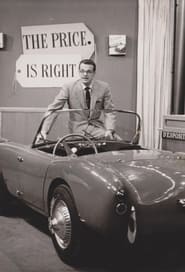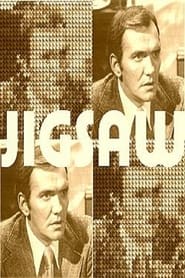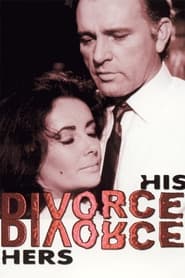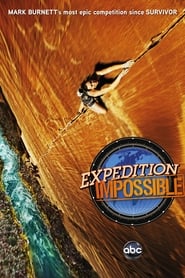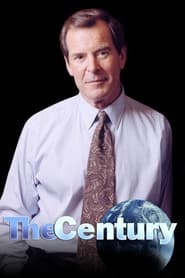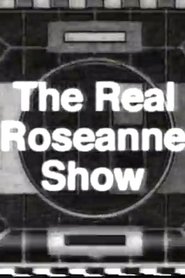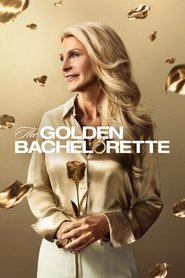Abc TV Series - Page 66
-
The Price Is Right
1956
star 7.3The Price Is Right is an American game show hosted by Bill Cullen that premiered on NBC on November 26, 1956. -
NASCAR in Primetime
2007
NASCAR in Primetime
2007
NASCAR in Primetime is a television program on ABC. It is a behind-the-scenes look at the preparation, logistics, drama and competition of NASCAR. Each episode of the show follows three teams and drivers during the '07 NASCAR season, including the #01 of Mark Martin, the #31 of Jeff Burton, the #42 of Juan Pablo Montoya and the #70 of Johnny Sauter. Other personalities, such as Montoya's wife Connie Montoya, and Sauter's crew chief, Bootie Barker, are also figures in the show. Episodes have revolved around each team's experience at a single race. Episode one was the Kobalt Tools 500 at Atlanta. Episode two was the Food City 500 at Bristol, etc. The show premiered August 15, 2007 at 10 p.m. Eastern/Pacific time, 9 p.m. Central/Mountain time. The program is produced by ABC News in cooperation with NASCAR Images. -
Jigsaw
1972
star 5Jigsaw is a short-lived television crime drama program, aired on the ABC network as an element of the wheel series The Men as part of its 1972-73 lineup. Universal Television produced this element; they had also produced the series which inspired The Men: The NBC Mystery Movie. -
Divorce His, Divorce Hers
1973
star 5The dissolution of an 18-year marriage, seen first from his point-of-view and then from hers. -
Celebrity Time
1948
Celebrity Time
1948
Celebrity Time was an American game and audience participation television series which aired originally aired on CBS and ABC from November 1948 to September 1952. The original host was Douglas Edwards. -
Big Fan
2017
star 5Celebrities face off with three of their biggest admirers to see who knows the most about them in this game show based on the "Jimmy Kimmel Live" segment "Who Knows...?" -
Expedition Impossible
2011
star 6.3Teams of three solve problems while racing across deserts, over mountains and through rivers. Each week a new stage of the expedition is revealed. Will teams crumble under the pressure of having to think clearly in the wilds of the great outdoors, or will they work together to get through and complete their adventures? After ten legs of competition, one team will cross the finish line first to claim victory. -
Kids Are People Too
0000
Kids Are People Too
0000
Kids Are People Too was a television series that ran on Sunday mornings from 1978 to 1982 on ABC. The series was a variety/news-magazine show oriented towards kids with the intention of recognizing them as people. During its four-year run, the series was nominated for five Emmy Awards and won the 1978 Emmy for Outstanding Children's Entertainment Series. The series included celebrity interviews, cartoons, music, and other information that appealed to kids. -
Our World
0000
Our World
0000
Our World is an American television news series that ran for 26 episodes, from September 25, 1986 to May 28, 1987. The show was anchored by Linda Ellerbee and Ray Gandolf. Each episode of the series examined, through the use of archival film and television footage, one short period in American history. Our World aired on ABC. Our World grew out of an earlier ABC News special called 45/85, whose producer, Avram Westin, would go on to produce Our World. Each episode was produced on a budget of $350,000, less than half of the budget of a typical hour of prime time programming at the time. Our World premiered to indifferent critical response but as the series progressed critics became effusive with their praise. Despite being critically well received and profitable for the network, Our World performed poorly in the Nielsen ratings, as its first half-hour was programmed against the extremely popular The Cosby Show. ABC canceled the show after one season. Ellerbee tried to move the series to PBS but was unsuccessful. -
Inspector Willoughby
1960
Inspector Willoughby
1960
-
The Marshal of Gunsight Pass
0000
The Marshal of Gunsight Pass is an American 1950 live broadcast western television series starring Russell Hayden, former Country music singer Eddie Dean, and Riley Hill as Marshal #1, Marshal #2, and Marshal #3, respectively. Hayden is not identified by a character name. Dean uses his own name in the series, and Hill is known as "Riley Roberts". The program hence went through three leading actors in its six-month run. Roscoe Ates played Deputy Roscoe; Andy Parker, Andy, and Bert Wenland, Bud Glover. Jan Sterling, then Jane Adrian, appeared at the age of twenty-nine as Ruth, the girlfriend of the 55-year-old Roscoe. The Internet Movie Data Base lists only the premiere episode of The Marshal of Gunsight Pass: "Shotgun Messenger", which aired on March 12, 1950. Other actors appearing in the episode were Hugh Hooker as David Clay, Marshall Reed as Larry Thomas, and Steve Conte as The Road Agent. Three actors made their only career screen appearances on The Marshal of Gunsight Pass: Eddie Coffman as "The Gunfighter", -
Court Martial
1965
star 6Court Martial is an ITC Entertainment and Roncom Productions co-production crime drama television series set during World War II. The series details the investigations of a Judge Advocate General's office. It aired for one 26-episode season from September 5, 1965 to April 4,1695 on London's Associated Television (ATV). Twenty episodes were shown on ABC in the United States between April 8 and September 2, 1966. The series had its genesis in a two-part episode of NBC's Kraft Suspense Theatre, "The Case Against Paul Ryker", which was later re-edited into a 1968 theatrical feature, Sergeant Ryker. The series won the1966 British Society of Film and Television TV award for Best Dramatic Series. -
TV's Bloopers & Practical Jokes
1984
star 6.5TV's Bloopers & Practical Jokes is an American television series. Debuting as a weekly series, new episodes have been broadcast as infrequent specials during most of its run. It premiered on NBC in 1984, moved to ABC in 1998, and was revived in syndication in 2012. The NBC run of the series was co-produced by Carson Productions and Dick Clark Productions, and the ABC and syndication runs have been produced solely by Dick Clark Productions. -
Bruce Forsyth's Hot Streak
1986
Bruce Forsyth's Hot Streak is an American television game show that aired on ABC from January 6 to April 4, 1986. British television personality Bruce Forsyth hosted the series, the only time he hosted a series outside of his native United Kingdom. Gene Wood was the original announcer, with the last several weeks of shows announced by Marc Summers, later of Double Dare fame. Reg Grundy Productions produced Bruce Forsyth's Hot Streak, which was the first network series the Grundy company produced for ABC; its first three daytime series had all aired on NBC. -
The Century
1999
-
Break the Bank
1948
Break the Bank
1948
Break the Bank is an American quiz show which aired variously on Mutual Radio and ABC, CBS and NBC television from 1945 to 1957. -
Adams of Eagle Lake
1975
Adams of Eagle Lake
1975
Adams of Eagle Lake is an American hour-long police series that aired on ABC in 1975. Andy Griffith starred as Sheriff Sam Adams and the episodes presented his attempts to maintain the law in a small resort town. Despite a strong cast, including veteran TV actress Abby Dalton, the show lasted for only two episodes. -
The Real Roseanne Show
2003
The Real Roseanne Show is a reality show that aired briefly in 2003 about actress and comedian Roseanne Barr hosting a cooking show, called Domestic Goddess. It premiered on ABC on August 6, 2003 to 5.5 million viewers. Domestic Goddess was scheduled to air September 20, 2003 but was canceled after Barr declared the pilot unfit to broadcast and due to her having an emergency hysterectomy, which made reshoots impossible. It would have aired on ABC Family. Although 13 episodes were ordered, The Real Roseanne Show was consequently canceled the same day after airing only two episodes. -
The Golden Bachelorette
2024
One radiant woman in her golden years is given a second chance at love. The men vying for her final rose have journeyed through the highs and lows of love, navigating moments of joy and heartbreak, and they arrive with anticipation, eager to foster a connection that sparks a future of limitless possibilities. -
Mariah
1987
star 5Short-lived US drama series about the prison staff at Mariah State Penitentiary, that aired mid-season 1987 on ABC.
